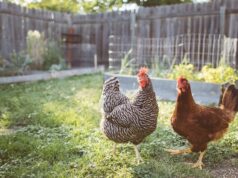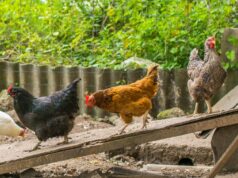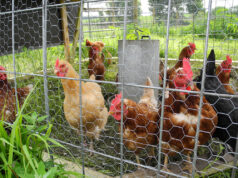As a poultry enthusiast, you might find yourself scratching your head and pondering, ‘Why aren’t my chickens laying eggs?’ This is a common concern for many chicken lovers who see their birds more as family than just feathered egg producers.
Seeing a drop in egg production can be puzzling and worrying. Several factors could influence this change, whether it be environmental, dietary, or related to the chicken’s health.

The Importance of Understanding Egg Production
The understanding of egg production is crucial for any chicken owner. Knowing the reasons behind fluctuations in egg-laying can help manage and improve the situation effectively. It brings us closer to answering the fundamental question: Why aren’t my chickens laying eggs?
Common Reasons for Reduced Egg Production
1. Age of the Chickens
Just like humans, chickens have a prime of life. Most hens will start laying eggs at about 6 months of age. However, as they age, their egg production naturally declines. If your flock consists mainly of older hens, reduced egg production is to be expected.
2. Diet and Nutrition
The importance of a balanced diet cannot be overstated. Chickens require specific nutrients to lay eggs consistently, including calcium, protein, and other vital minerals. Without them, their egg-laying performance might be compromised. To ensure your chickens get the best, consider providing tailored supplements.
3. Stress Factors
Chickens are creatures of habit, and any disruption, such as predators lurking around, loud noises, or sudden changes in the coop environment, can stress them out, leading to reduced egg production.
Environmental Influences on Egg Production
4. Seasonal Changes
Chickens might lay fewer eggs as seasons change. During the winter, the daylight hours are shorter which naturally signals a decline in egg production. To counter this, you might consider providing artificial lighting to extend daylight hours in the coop.
5. Molting Process
Molting is a natural cycle where chickens shed old feathers to grow new ones, often occurring annually. This process can cause them to halt or reduce egg-laying, as their energy is redirected towards feather regrowth.
Health and Well-being
6. Parasites and Diseases
External parasites like mites and lice, or internal ones such as worms, can severely affect a chicken’s health and their ability to lay eggs. Regular health checks and appropriate treatments can alleviate this issue.
7. Lack of Water
Dehydration is another invisible enemy. Without adequate clean water, egg production can drop fast, as laying eggs demands lots of moisture.
The Role of Breeds and Genetics
8. Breed Choices
The type of chicken breed can naturally dictate the volume of eggs laid. Some breeds are known for high production rates, while others are not. See which breeds fit your needs.
9. Genetic Diversity
Genetic factors also play a role in laying patterns. A diverse genetic background often results in healthier and more consistent egg layers.
Ensuring Optimal Conditions for Your Chickens
10. Coop Conditions
A clean, spacious, and well-ventilated coop provides the best environment for chickens to flourish and lay eggs efficiently.
11. Regular Biological Clocks
Maintaining a consistent routine for your chickens keeps their internal biological clocks regular, which aids in high egg production.
Enhancing Egg Productivity
12. Utilizing Artificial Light
As days grow shorter, the use of artificial lighting can keep egg production steady. Chickens need around 14-16 hours of light per day to lay their maximum potential.
13. Supportive Supplements
Providing a balanced diet supplemented with essential nutrients can make all the difference. Learn about the top supplements available for your flock.
Behavioral Observations
14. Broodiness in Hens
Sometimes, hens can become broody and refuse to leave their nests. During this period, they may stop laying eggs. Broodiness is dictated more by hormones than by external factors.
Utilizing Resources and External Advice
15. External Resources
There are various external resources and communities available to assist chicken owners, such as this guide on handling egg surpluses.
Understanding the intricate details of chicken egg production helps address the core question of why arent my chickens laying eggs? With this knowledge, you can take informed steps to ensure healthy and happy lives for your flock.

FAQs
When do chickens start laying eggs?
Chickens usually start laying eggs around 6 months of age, though this can vary slightly depending on the breed.
What should I feed my chickens to increase egg production?
Ensure they have a balanced diet rich in protein and calcium. Supplements can also be useful for enhancing egg production.
How do I manage egg production during winter?
Using artificial lighting in the coop can help maintain egg production during shorter daylight months.
This article contains affiliate links. We may earn a commission at no extra cost to you.










